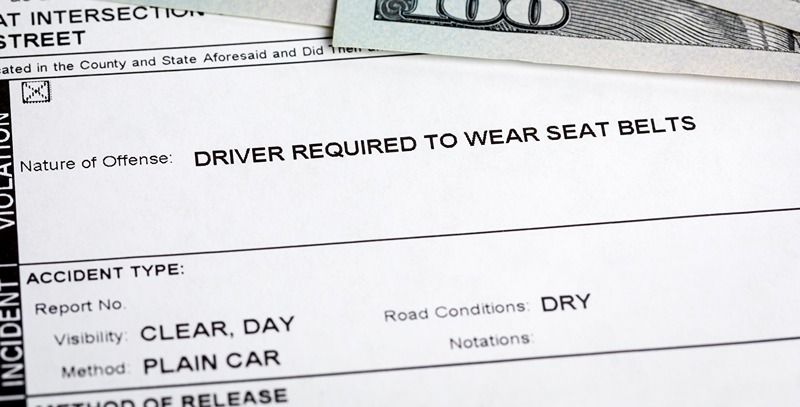Different Types of Bail Bonds

Understanding how the seven different types of bail bonds work and their role in the legal system is important when facing criminal charges.
At Kolsrud Law Offices, we empathize with the impact the bail process can have on individuals and their families. We're here to provide both expert legal advice and the guidance you need during this challenging time.
In Arizona, there are different types of bail bonds, like surety bonds, cash bail bonds, property bonds, citation release, recognizance release, immigration bail bonds, and federal bail bonds.
The bail amount set by a judge varies depending on factors like the alleged crime and the defendant's history. Having a skilled criminal defense attorney can make a big difference.
Studies show that those who seek legal help during the bail process often get better bail terms.

What are Bail Bonds, and How Does the Process Work?
Bail bonds are a fundamental element of the legal system, serving as a means for individuals accused of a crime to secure their temporary release from custody while awaiting trial.
A bail bond is a financial guarantee provided to the court, establishing trust between three key parties: the defendant, the court, and a surety company or bail bondsman.
The bail process unfolds as follows: When someone is arrested and taken into custody, a judge may set bail as a condition for their potential release from jail. Instead of the defendant paying the entire bail amount directly to the court, an alternative option exists – the utilization of a bail bond.
Typically, defendants pay a percentage of the bail amount, often around 10%, to a surety company or bail bondsman. It then becomes the responsibility of this third party to post the full bail amount to the court on behalf of the defendant.
☞ The primary purpose of bail bonds is to ensure that defendants fulfill their commitment to attend all required court hearings and legal proceedings related to their case.
As long as defendants honor this commitment and appear in court as scheduled, the full amount of the bail is generally returned to the individual who posted it. This typically occurs after the case concludes, ensuring the bail serves its intended purpose of guaranteeing the defendant's appearance.
It's important to note that the legal framework for bail bonds varies by state, and in Arizona, it falls under the Arizona Revised Statutes 13-3967
Contact us today to schedule a
FREE CONSULTATION and learn
how we can help you.
Surety Bonds
Surety Bonds are agreements involving three parties: the defendant, the court, and a surety company. Here's what you need to know:
- Definition: A Surety Bond is a contract where the surety company guarantees to pay the court the bail amount if the defendant fails to appear in court as required.
- How it Works: When someone is arrested, a judge may set bail as a condition for their release. Instead of paying the full bail amount themselves, defendants can use a surety bond. They typically pay a percentage of the bail amount (usually 10%) to the surety company.
- The Role of Surety Companies: These companies are licensed by the state and provide the financial guarantee required for bail. They assess the defendant's risk and charge a fee for their services.
According to data from the Arizona Department of Corrections, the total number of Surety Bonds issued in the state for criminal cases in 2022 was over 30,000,

Cash Bail Bonds
Cash Bail Bonds entail that defendants pay the full amount in cash or an equivalent form, serving as a means to secure their release.
- Definition: Cash Bail Bonds require the defendant, or their family and friends, to pay the entire bail amount in cash or an equivalent financial instrument. This payment is held by the court as a guarantee for the defendant's appearance in court proceedings.
- Advantages: This option appeals to individuals with the financial means to cover the entire bail amount. If the defendant complies with all court appearances, the cash is returned to the person who posted it, typically after the conclusion of the case.
- Considerations: It's important to recognize that not everyone can afford to pay cash bail, which is why alternative options like Surety Bonds exist. Additionally, in the event of the defendant's failure to appear in court, they forfeit the entire cash bail amount.
- Prevalence: Cash Bail Bonds are relatively common in Arizona, particularly in cases where defendants or their loved ones can provide the full bail amount upfront.
In 2021, Cash Bail Bonds constituted approximately 15% of all bail bonds issued in Arizona
Property Bonds
Property Bonds are a unique form of bail bond that allows defendants to use their property as collateral to secure their release from custody.
➤Here's what you need to know about Property Bonds:
- Definition: Property Bonds, as the name suggests, involve using real estate or other valuable assets used as collateral to secure bail. Instead of paying cash or involving a surety company, the defendant or a third party pledges property worth at least the full bail amount.
- Property Eligibility: Not all types of property are accepted as collateral for Property Bonds. Generally, real estate, such as a home or land, is commonly used. The property's value must meet or exceed the bail amount set by the court.
- Appraisal Process: To determine the property's value, an appraisal is often required. This ensures that the property's worth is sufficient to cover the bail amount.
- Risk and Considerations: While Property Bonds can be a viable option for those who own valuable real estate, there are risks involved. If the defendant fails to appear in court, the court may initiate foreclosure proceedings on the pledged property.
In Arizona, Property Bonds account for approximately 5% of all bail bonds utilized.

Citation Release
Citation Release, often referred to as a "cite-out" or "cite-and-release," is a process where law enforcement officers issue a citation to a defendant instead of taking them into custody.
➤Here's a closer look at Citation Release:
- Definition: Citation Release is a legal mechanism through which a law enforcement officer issues a citation or ticket to a defendant rather than making an arrest. The citation contains information about the alleged offense, a court date, and sometimes a bail amount.
- Applicability: This form of release is commonly used for minor offenses or violations, such as traffic infractions, misdemeanor offenses, or certain low-level offenses. It allows officers to free up resources by not booking individuals into jail for minor transgressions.
- Responsibilities: When issued a citation, the defendant is responsible for appearing in court on the specified date. Failure to do so may result in additional charges and the issuance of an arrest warrant.
- Bail Component: In some cases, a citation may include a bail amount that the defendant can pay in lieu of appearing in court. This allows them to resolve the matter without a court appearance.
Citation Release is widely used in Arizona, particularly for low-level offenses. In 2022, approximately 20% of all non-felony arrests resulted in Citation Release rather than immediate custody.
Recognizance Release
Recognizance Release is a method through which a defendant is released from custody without having to pay bail or secure a bond.
Instead, they are released on their own personal recognizance, often referred to as "O.R."
➤Here's an overview:
- Definition: Recognizance Release is a process where defendants are free to go from custody based on their promise to appear in court for all scheduled hearings and proceedings. It involves no financial obligation or collateral.
- Eligibility: Recognizance Release is typically granted to individuals who are considered low flight risks and pose minimal danger to the community. Factors such as the nature of the offense, the defendant's criminal history, and ties to the community are considered.
- Promise to Appear: Defendants released on their own recognizance sign a legal document in which they commit to attending all required court dates. Failure to do so can result in the issuance of an arrest warrant.
- Financial Savings: Recognizance Release eliminates the need for the defendant to pay bail or involve a surety company, which can be a significant financial relief for many individuals.
Recognizance Release is a relatively common practice in Arizona, with approximately 15% of all pretrial releases in non-felony cases involving O.R. release in 2021.
Immigration Bail Bonds
Immigration Bail Bonds are a specific type of bail bond used to
secure the release of individuals held in immigration detention centers.
➤Here's a closer look at Immigration Bail Bonds:
- Definition: Immigration Bail Bonds, also known as ICE Bonds or Immigration Bonds, are a means for detained individuals to secure their release from immigration detention centers while their immigration case is pending. They function similarly to other bail bonds but apply to immigration proceedings.
- Applicability: Immigration Bail Bonds are typically used for individuals detained by Immigration and Customs Enforcement (ICE) for various immigration-related reasons, such as visa violations or pending deportation hearings.
- Release Conditions: To obtain an Immigration Bail Bond, the detainee or a sponsor must pay the bond amount set by an immigration judge. The bond serves as a guarantee that the individual will attend all required immigration court proceedings.
- Types of Immigration Bonds: There are two main types of Immigration Bonds:
- Delivery Bonds, which allow the detainee to be released from detention but require them to attend all court hearings, and Voluntary
- Departure Bonds, which allow the detainee to leave the country voluntarily by a specified date and receive a bond refund.
- Legal Framework: Immigration Bail Bonds in Arizona are subject to federal immigration laws and regulations. They are not governed by state statutes like other bail bonds.
In 2021, the U.S. Immigration and Customs Enforcement (ICE) reported the issuance of over 13,000 Immigration Bonds nationwide

Federal Bail Bonds
Federal Bail Bonds pertain to individuals facing charges in the federal court system. They serve as a means for these defendants to secure their release from federal custody.
➤Here's a look at Federal Bail Bonds:
- Definition: Federal Bail Bonds are bonds posted in federal cases, including those involving federal crimes. They enable defendants to be released from federal custody while their case is pending trial. These bonds are distinct from state-level bail bonds and are subject to federal laws and regulations.
- Types of Federal Bail Bonds: There are two main types of Federal Bail Bonds: Appearance Bonds and Release on Recognizance (ROR).
- Appearance Bonds require a financial guarantee, often with conditions.
- ROR allows the defendant to be released based on their promise to appear in court without posting bail.
- Setting the Bond Amount: In federal cases, the court determines the bond amount based on various factors, including the nature and severity of the charges, the defendant's criminal history, and the flight risk posed by the defendant.
- Financial Responsibility: Defendants or their sponsors must pay the bond amount or provide collateral to secure their release. This ensures that they have a financial incentive to attend all court proceedings.
- Federal Statutes: Federal Bail Bonds are governed by federal laws and regulations, including the Bail Reform Act of 1984 (18 U.S.C. § 3141 et seq.). These laws outline the procedures and conditions for federal pretrial release.
In the United States, approximately 70% of federal defendants are released pretrial, either on Federal Bail Bonds or through other forms of release.
How a Criminal Defense Attorney can Help
Kolsrud Law Offices is dedicated to helping individuals facing criminal charges secure their release through bail. They have in-depth knowledge of bail laws, enabling them to assess your situation, explain bail options, and negotiate reasonable bail amounts when necessary.
If paying bail upfront is challenging, your attorney will also explore alternative solutions, such as property bonds or bail bondsmen. Furthermore, they ensure that your rights are protected and that you are treated fairly throughout the legal process, offering peace of mind during a challenging time.
Additionally, your attorney begins building your defense strategy early, preparing you for upcoming legal proceedings. A criminal defense attorney is your dedicated advocate, committed to achieving the best possible outcome for your case.
Kolsrud Law Offices offers a free consultation to discuss your case, and you can reach them at 480-680-9769.
An award-winning criminal defense attorney Since 2006
Why Choose Josh Kolsrud
With over 100 trials to his name, and years of experience as a state and federal prosecutor, Josh understands the law, the legal process, and your rights. Josh is also committed to representing every client with utmost integrity and dedication
Experience
Josh has prosecuted major crimes on the state and federal level, led a successful anti-human sex trafficking operation that saved lives, and argued before countless juries and justices for his clients
Expertise
Josh is an expert in both Arizona and federal criminal law, and is ready to put that expertise to work for you.
Dedication
As a prosecutor, Josh saw far too many defendants lose their livelihood due to poor representation. Josh will always give every client his complete attention and effort
Get a Free Initial Consultation:
Complete our form below to get a free case review.
or call us at (480) 999-9444.
